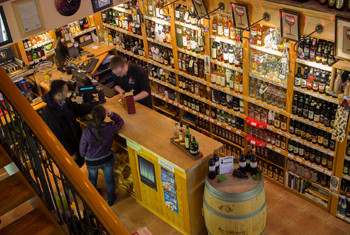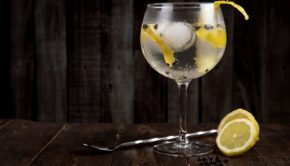ABFI: 2018 will be the year of Irish gin

The ABFI has published its 2018 outlook report, which predicts an export boom for Irish gin alongside the continued success of Irish whiskey and beer this year.
2 February 2018
The Alcoholic Beverage Federation of Ireland’s 2018 outlook sets a positive tone for the industry, predicting among other things that Irish gin will go on to international success. Exports are predicted to rise significantly, alongside continued success for Irish whiskey and beer – already world-renowned in their own right.
However, the report also highlights major issues facing the industry this year. Retailers may have triumphed in their clash with the Alcohol Bill, but for producers it’s a whole other ball game. The “draconian and disproportionate” proposals regarding advertising and labelling are some of the major issues facing the industry, alongside the ongoing Brexit drama.
Here is what to expect from the industry this year, according to the report:
Irish Gin: In Ireland, the growing demand for gin has been matched by an explosion in the number of Irish gin producers. There are now more than 30 Irish gin brands on the market. Many of these producers are also exporting, with exports of Irish gin more than trebling during 2017. While last year marked a breakthrough in term of exports for Irish gin producers, 2018 is set to see Irish gin going global, with exports to the US, Canadian, UK and German markets set to grow significantly.
Irish Whiskey: Production of Irish whiskey continues to grow to meet demand. Since 2014, the number of operational Irish whiskey distilleries has grown from four to 18, with 16 more planned. Overall, production of Irish whiskey is forecast to double between 2015 and 2020 and double again in the following decade.
Meanwhile, 2018 is will see several of Ireland’s newer distilleries release their stock for the first time (seeing as Irish whiskey by law must be aged at least three years and one day), meaning the category will see lots of new products hitting the market.
Irish Beer: The most notable trend in the beer sector has been the introduction of new flavours in international markets, catering to the changing taste preferences of consumers. Another trend that has started to emerge in Europe and the United States has been the growing demand for low non-alcohol beer. These trends have already started to hit Ireland and ABFI anticipates they will continue in 2018.
Meanwhile, according to Bord Bia, there are now over 100 craft beer brands in the country.
Exports: Irish drinks exports rose by 8% last year to €1.5 billion. According to Bord Bia, the outlook for Irish drinks exports in 2018 is positive, driven by the ongoing growth trajectory of Irish Whiskey, the popularity of premium brands and product innovation.
Greater demand for agri inputs
The vast majority of Irish breweries and distilleries source their barley and malt locally, with the Irish drinks industry spending €1 billion on grains and dairy every year. It is anticipated that export growth, particularly of Irish whiskey, will lead to further increased demand for Irish grain. Furthermore, the commitments made by Irish drinks producers under Bord Bia’s Origin Green scheme means more agricultural raw materials will be sourced locally.
While there are strong prospects for the industry, ABFI has warned that the Public Health (Alcohol) Bill could hinder future growth.
The government’s proposal to introduce health warnings on all alcohol products sold in the Republic of Ireland would put huge additional costs on producers, the report stresses. This increased cost would be particularly harmful for small local producers and new entrants. The labelling requirements would act as a severe barrier to entry and such a measure would cause serious reputational damage to Ireland’s premium drinks products.
Meanwhile, advertising content restrictions being proposed in the Alcohol Bill would also hugely damage small players and new entrants to the market, as they wouldn’t be able to effectively advertise their products to consumers.
“The drinks industry is an important Irish industry, with innovation at its core,” says ABFI director Patricia Callan. “However, we are concerned about the unintended negative consequences of the Alcohol Bill. We have seen a number of new players and new products hit the market in recent years, which has supported growth. The Alcohol Bill could slow down or even reverse this growth, as it includes proposals that would act as a barrier to entry and a barrier to innovation.
“Furthermore,” Callan says, “the Bill is being introduced at a tumultuous time for Irish business, with 2018 due to be a pivotal year in the Brexit negotiations.
“We believe there is scope for reasonable amendments on advertising and labelling, which would protect competition, innovation and investment in the industry, as well as choice for consumers.”



 Print
Print




Fans 0
Followers